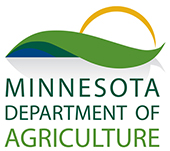MN Mice Removal | Rodent Prevention and Control For MN Homeowners
During the winter months, we imagine being snugly locked inside our warm homes while the cold winter winds howl outside. It brings images of warm fires or heated rooms to protect us from the cold. Unfortunately, this is also the most likely time that rodents will invade and infest your house. Rats, mice, and squirrels are the most common invaders, though there have been cases of a raccoon getting in as well.
They can squeeze through almost any opening on your house from pet doors to vents with missing screens to dryer ducts to even holes they chew through your walls. A mouse needs only a space the size of a nickel to fit through and rats only need a space the size of a half dollar. Once in, they chew through nearly everything from walls to food to cardboard boxes to electrical wiring, which may lead to electrical short and fire.
If you don’t see one directly, you can tell you have a problem by the gnawing evidence, or hearing scampering or gnawing sounds in the attic or inside walls. You could also find droppings in undisturbed areas of the house such as pantries, attics, and along baseboards and walls.
If you find these telltale signs, seek out a professional pest control expert quickly. Besides causing damage to your home, rodents can also cause allergies and spread potentially lethal diseases such as the hantavirus and arena virus. A animal control expert can help you get rid of the rodent problem you have and help you to prevent a future invasion.
The droppings, saliva and urine of certain rodent species are known to transmit Hantavirus pulmonary syndrome (HPS). Disturbance of the droppings causes the virus to go airborne in a process known as aerosolization. Deer mice are the most common transmitters of HPS.
Although transmission is rare, HPS can prove deadly if left untreated. Symptoms include tachycardia and tachypnoea. Cardiovascular shock may occur in severe cases. Rodent control is still considered the most effective prevention of HPS.
Rodent Droppings
Rodent droppings should be handled with utmost care. Particularly after they have dried, feces can be reservoirs of a variety of dangerous diseases and viruses. These dry droppings break apart upon contact and release airborne particles that may enter your nasal passages, causing infection.
Droppings of any animal are perfect breeding grounds for bacteria and diseases, and if you are not careful it could be harmful. For instance, not wearing a mask while cleaning bat guano can be dangerous, and raccoon feces can harbor parasitic worms that can make you very ill and in rare cases, death.
Do not handle droppings in your home without first taking preventive measures. Tightly fitted facemasks and rubber gloves are highly advisable. Avoid sweeping or vacuuming the location, as this may lead to further release and dispersal of virus particles. Sanitation of affected areas with spray disinfectant is recommended.
Contact your local Minnesota animal control expert to discuss extermination options.





